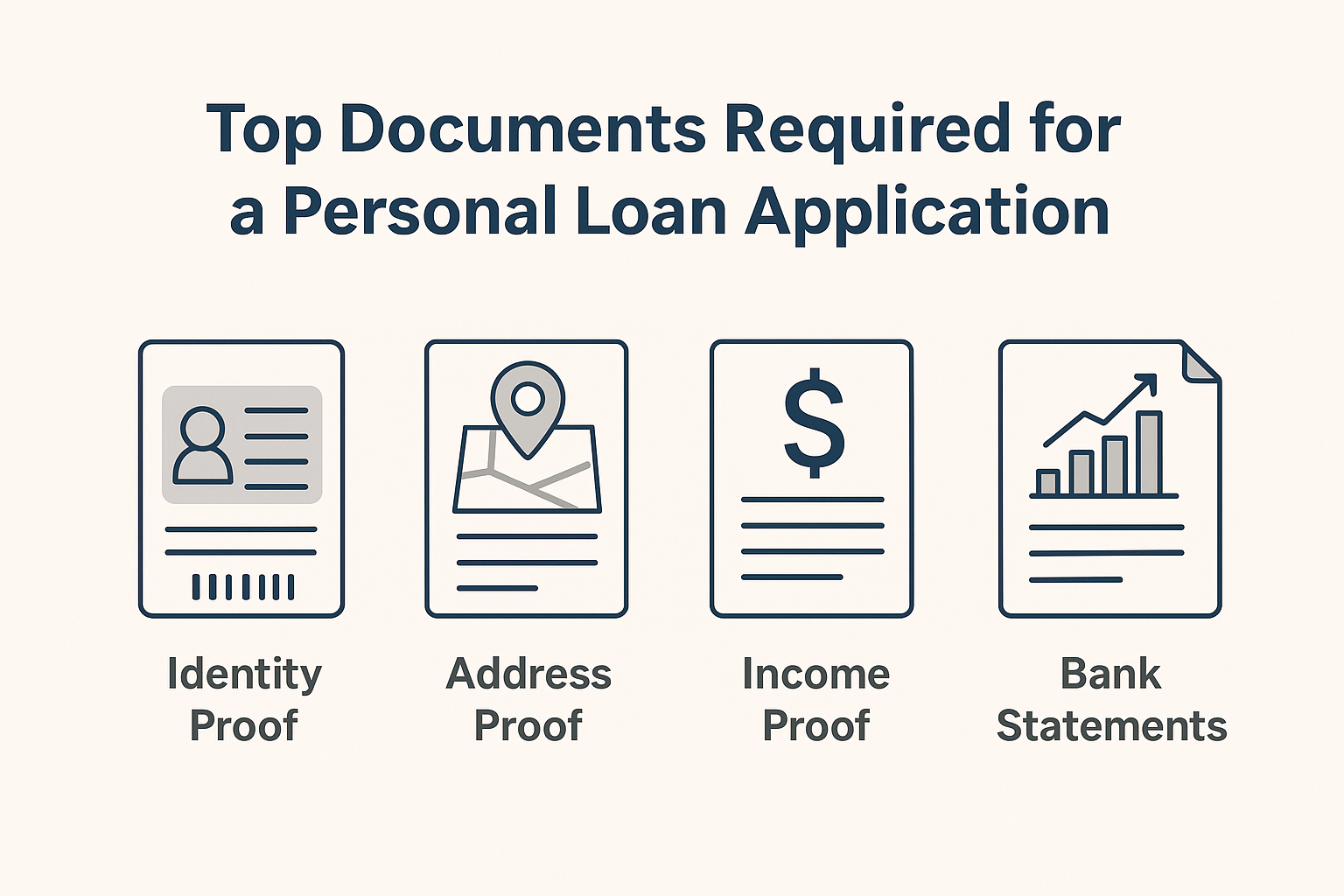Applying for a personal loan can be a straightforward way to access funds for major expenses, debt consolidation, or unexpected emergencies. However, to ensure a smooth loan application process and increase your chances of loan approval, you need to provide the right documents. This guide outlines the top documents typically required for a personal loan application, helping you prepare effectively no matter where you are in the world.
Why Are Documents Important for a Personal Loan?
Lenders require specific documents to verify your identity, income, and financial stability. These documents help them assess your ability to repay the loan and determine your eligibility. Having all the necessary paperwork ready can speed up the loan approval process and reduce the risk of delays or rejection.
Top Documents Required for a Personal Loan Application
While requirements may vary slightly depending on the lender, the following are the most commonly requested documents for a personal loan application:
1. Proof of Identity
Lenders need to confirm your identity to prevent fraud and ensure you are who you claim to be. Common documents include:
- Government-issued photo ID (e.g., passport, driver’s license, or national ID).
- Other identification documents with your name and photo, if required by the lender.
Tip: Ensure your ID is valid and not expired, as expired documents are often rejected.
2. Proof of Address
Lenders may require proof of your residential address to verify your location and stability. Acceptable documents include:
- Utility bills (e.g., electricity, water, or gas bills) from the past 2–3 months.
- Rental agreement or lease document.
- Bank statements showing your address.
Tip: Make sure the address on your documents matches the one you provide in your application.
3. Proof of Income
Your income is a key factor in determining your ability to repay the personal loan. Lenders typically ask for:
- Recent pay stubs or salary slips (usually for the last 3–6 months).
- Tax returns or income tax documents for the past 1–2 years (especially for self-employed individuals).
- Bank statements showing regular income deposits.
Tip: For self-employed applicants, additional documents like business financial statements may be required to prove consistent income.
4. Employment Verification
Lenders may verify your employment status to assess job stability. Documents include:
- Employment contract or offer letter.
- Letter from your employer confirming your job role and tenure.
- Business registration documents (for self-employed individuals).
Tip: Stable employment history can improve your chances of loan approval.
5. Bank Statements
Bank statements provide insight into your financial habits and ability to manage funds. Lenders typically request:
- Statements for the last 3–6 months from your primary bank account.
- Proof of savings or other accounts, if applicable.
Tip: Consistent savings and responsible spending patterns can strengthen your loan application.
6. Credit History or Credit Report
Your credit history helps lenders evaluate your creditworthiness. Some lenders may:
- Request a copy of your credit report from a credit bureau.
- Ask for details of existing loans or credit card balances.
Tip: A strong credit score can lead to better interest rates and faster approval. Check your credit report for errors before applying.
7. Additional Documents (If Applicable)
Depending on the lender and your financial situation, you may need:
- Proof of other income sources (e.g., rental income, investments).
- Details of existing debts or financial obligations.
- Collateral documents (for secured loans, though most personal loans are unsecured).
Tip: Always check with your lender for any specific requirements to avoid surprises.
Tips to Streamline Your Personal Loan Application
To make the loan application process smoother and increase your chances of approval, follow these tips:
- Gather Documents in Advance: Prepare all required documents before starting your application to avoid delays.
- Ensure Accuracy: Double-check that all documents are up-to-date, accurate, and match the information in your application.
- Compare Lenders: Different lenders have varying requirements and interest rates. Shop around for the best terms.
- Improve Your Credit Score: Pay off existing debts and avoid late payments to boost your creditworthiness.
- Be Honest: Provide truthful information, as discrepancies can lead to rejection.
Common Mistakes to Avoid
To ensure a hassle-free personal loan application, steer clear of these pitfalls:
- Submitting incomplete or outdated documents.
- Applying for multiple loans simultaneously, which can harm your credit score.
- Ignoring lender-specific requirements, which may vary.
- Overlooking small details, like mismatched names or addresses.
Conclusion
A successful personal loan application starts with having the right documents ready. By providing clear proof of identity, address, income, and financial stability, you can boost your chances of loan approval and secure favorable terms. Take time to gather all necessary paperwork, compare lenders, and ensure accuracy to streamline the process. With proper preparation, you’ll be well on your way to accessing the funds you need for your financial goals.

